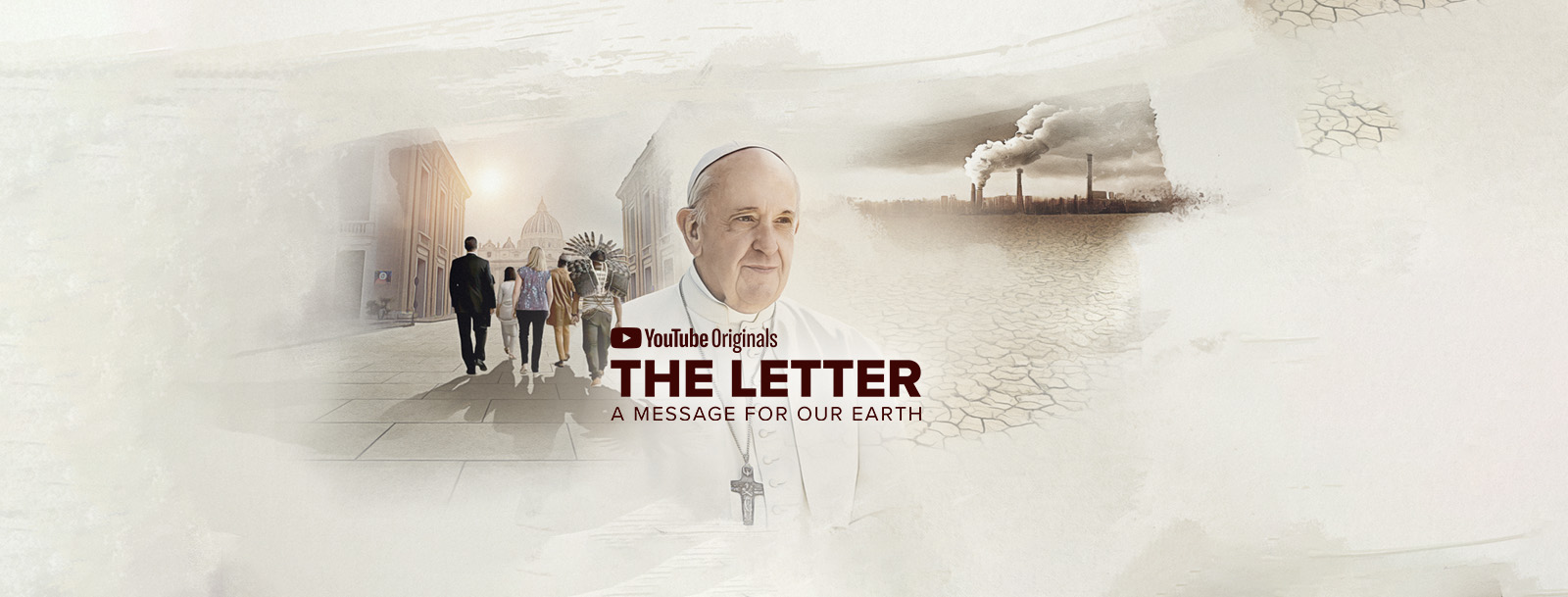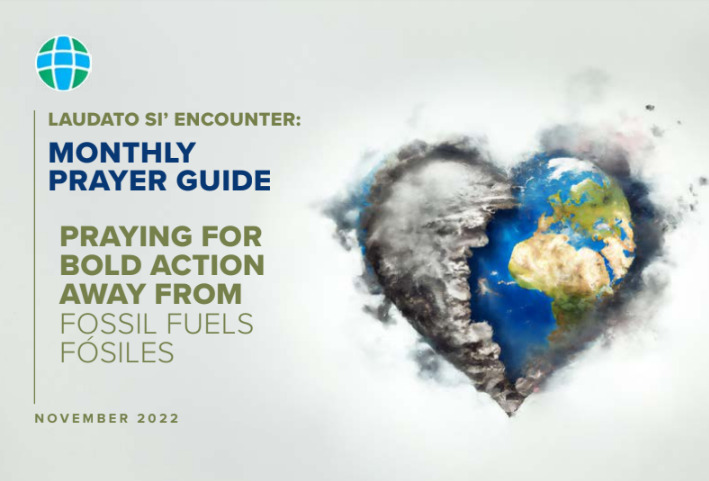
Monthly intention
On what do I base my trust?
Hearing Creation’s Cry
Hearing Creation’s Song
Ecological conversion story
Inspiring Saint
The Letter” has already been released: 3 simple but exciting reasons to watch it and spread the word
If you prefer, you can download this resource in PDF format by clicking here.
Monthly intention
November 2022
Praying for bold action away from fossil fuels fósiles
“We know that technology based on the use of highly polluting fossil fuels – especially coal, but also oil and, to a lesser degree, gas – needs to be progressively replaced without delay” (LS 165).
Prayer for Divestment
Creator God, Through You all things were made, the stars in the sky, the birds of the air, the breadth of life beneath the seas. Beauty surrounds us, like a love letter inscribed on this earth. Blessed be Your name. But we have not lived up to our vocation as protectors of Your handiwork.
The earth has been plundered and cries out to us. Through our use of fossil fuels we have filled the skies with gases which are harming our world, Your creation. We know that it is the poor who suffer the most from our actions and we ask forgiveness. We also know that things can change and that we can embark on new paths, restoring our common home and clearing the skies.
We pray that those who have decision making powers, will divest from the fossil fuel industry, challenging big corporations to leave behind this era of destruction and pollution. We pray that political leaders make way for affordable forms of clean energy for all. We ask that workers be treated fairly as we make this transition. Move the hearts of those who seek only profit at the expense of the earth and the poor.
May we be guided by Your Spirit, in courage and deter- mination. Help us to embrace new possibilities, new sources of energy, and set out on this path of renewal. We ask this through Jesus Christ Your Son, Amen. St. Francis of Assisi, pray for us..
Prayer from the Laudato Si’ Movement Prayer Book, available on page 54, which you can download here
Go to top
On what do I base my trust?
Inspired by scripture Luke 21, 5-19
By Fr. Eduardo Agosta Scarel, O. Carm, Senior Advisor, Laudato Si’ Movement
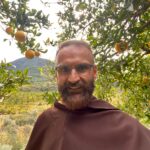 The Word of God on this 33rd Sunday in the Ordinary Season prepares the ground for the closing of the Liturgical Year, which concludes with the Solemnity of Christ the King on the following Sunday. For this reason, the text chosen from the Gospel of St. Luke has that particular tone that announces the “end times”. It is a narrative style very typical of the Jewish literature of Jesus’ time and which goes back centuries in the Old Testament: the apocalyptic (revelatory) and eschatological (of the last things) narrative.
The Word of God on this 33rd Sunday in the Ordinary Season prepares the ground for the closing of the Liturgical Year, which concludes with the Solemnity of Christ the King on the following Sunday. For this reason, the text chosen from the Gospel of St. Luke has that particular tone that announces the “end times”. It is a narrative style very typical of the Jewish literature of Jesus’ time and which goes back centuries in the Old Testament: the apocalyptic (revelatory) and eschatological (of the last things) narrative.
This narrative style is full of allegorical images to speak to us of God’s intervention in history, that is to say, that God is the Lord of history – the Owner of it – and that He is always presente. Therefore, we who are itinerants of impermanence, must trust and not despair in the face of the tribulations of the present time.
Notice that Jesus is not so much impressed by the “end times” as by the attitude that each one assumes before the present reality (“before all this happens”). It is the present of the believing human being that interests Jesus.
“See that you not be deceived”: Neither the end nor the catastrophes are of any importance, if we know how to maintain the right attitude. “Do not be terrified”: Reality should not disturb us. We know that the material reality ends, but the essential endures. “By your perseverance you will secure your lives”: The attitude of trust in God must be constant.
Hence, the essence of the message of God’s Word lies in the importance of the present moment as opposed to our fears about the struggles we face or uncertain speculations about the future. Jesus teaches us that: Our securities must not be based on impermanent things, since the opulence and power of this world will sooner or later lapse (“there will not be left a stone upon another stone”).
Therefore, here and now I can discover my fullness by giving a courageous and prophetic witness to the hope that sustains me: by being consistent, by proclaiming the Word, by acting accordingly. All this in the intimate sphere of my family, as well as out there, in the streets, in the marketplace, at work, at school.
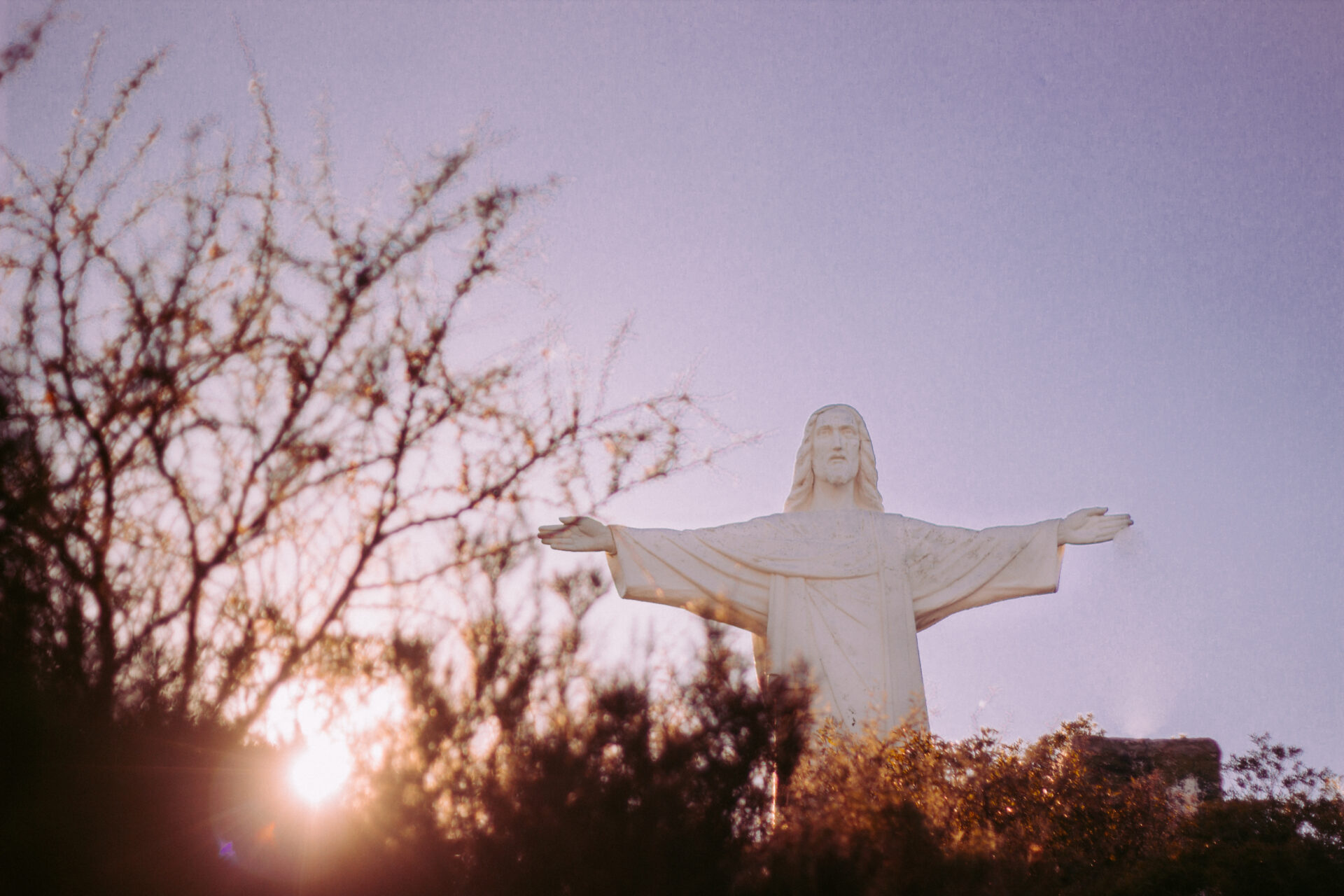
Today, in the “eschatological” context of the climate crisis, Pope Francis reminds us that: “We know that technology based on the use of highly polluting fossil fuels – especially coal, but also oil and, to a lesser degree, gas – needs to be progressively replaced without delay.” Consequently, the Pope invited believers to “pray for bold actions” in the face of this present-day challenge.
Such bold actions – as crazy as abandoning the comfort of fossil fuels for good – can constitute a prophetic and crucial witness on the part of believers, even if the whole world is against it. It is to recognize that the age of fossil fuels is also impermanent. And not to be afraid to say so. Moreover, advocating divestment from fossil fuels, or a fossil fuel non-proliferation treaty, is extremely demanding: it requires consistency on our part, with a radical change in our lifestyles.
This is what Francis wished to recall by saying: “As persons of faith, we feel ourselves even more responsible for acting each day in accordance with the summons to conversion. Nor is that summons simply individual: “the ecological conversion needed to bring about lasting change is also a community conversion”.”
The question is already raised: Why be afraid of this change or conversion? On what do I base my trust? Am I truly convinced that what is essential is what endures?
Go to top
Hearing Creation’s Cry
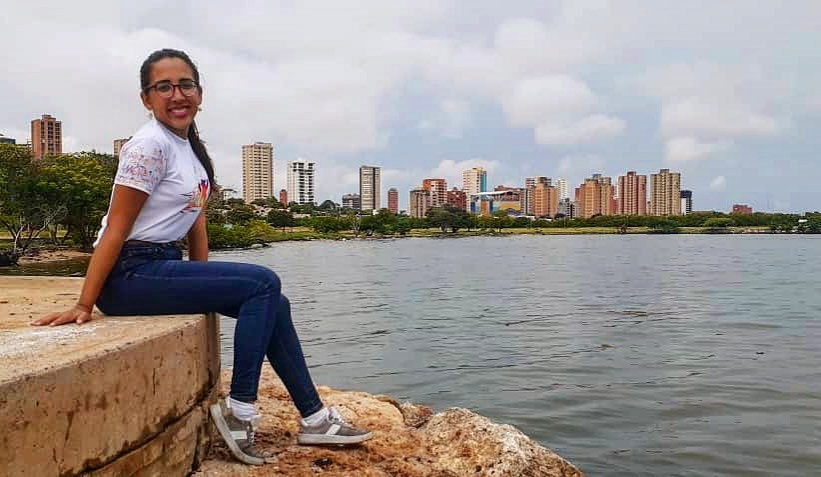
Lake Maracaibo, Zulia Venezuela.
By Marioxis Alvarado, LSM Venezuela Chapter Coordinator
Beloved Father, we want to ask your forgiveness for the damages that human beings have caused in this immense Lake created with so much love by you, help us to be those instruments of your love, that can recover each one of its spaces, thus being able to save each species that inhabits its waters, and helping the communities that depend on it to improve, because we know that water is life.
We give you thanks for all your creation; help us to always be your instruments of peace and love.
Go to top
Hearing Creation’s Song
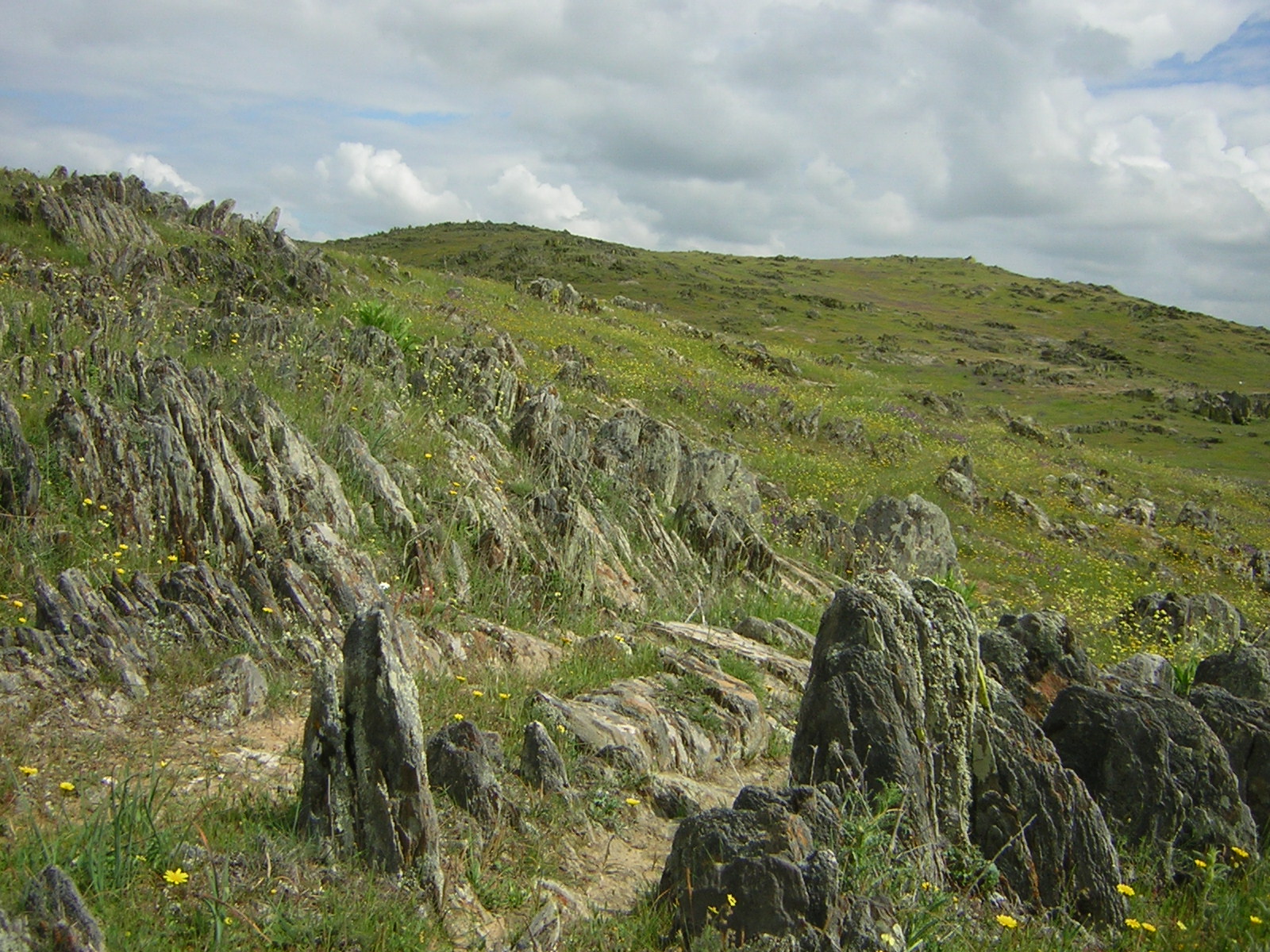
Autumn Mediterranean greening, Spain.
By Trinidad Ruiz Tellez, Laudato Si’ Animator, Spain
Our Father, Lord of Time and of all Times, who gives autonomy to the temporal.
We perceive you in the greening of the fields of our Extremadura land when at this time the first autumn rains begin to fall and the grass is gradually changing to green, from all kinds of yellows.
Again and again, each and every year: like a litany of hope where beings and the cosmos itself would like to repeat in chorus: “Trust in Yahweh forever and ever” (Is 26:4).
The grass sprouts between the rocks, and even a few flowers.
Life returns, life arrives, in the simple living of our latitudes after a hot and dry summer.
And in this autumn greening, so Mediterranean, close and ours, the Gospel phrase resounds: “Take heart! I have overcome the world.” (John 16:33).
Go to top
Ecological conversion story
By Yorky Benjamín López Castillo, Laudato Si’ Animator, Dominican Republic
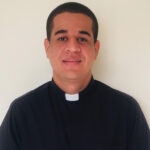 Hello, I am Yorky Benjamín López Castillo, I am 28 years old and I am Dominican. Additionally, I am a Major Seminarian of the Archdiocese of Santiago. I currently reside in the Pontifical Seminary of St. Thomas Aquinas, where I study theology, in Santo Domingo. I learned about the Laudato Si’ Movement in 2021, that is when I received training to become a Laudato Si’ Animator. But my love for nature is something that has always been with me, as I am very concerned about the care of ecology. I like to protect the environment and raise awareness to others not to destroy nature. I am passionate about mountains, forests, rivers and beaches. In the beauty and harmony of a landscape I find peace and serenity. That is why I fight for the preservation and care of our mother Earth.
Hello, I am Yorky Benjamín López Castillo, I am 28 years old and I am Dominican. Additionally, I am a Major Seminarian of the Archdiocese of Santiago. I currently reside in the Pontifical Seminary of St. Thomas Aquinas, where I study theology, in Santo Domingo. I learned about the Laudato Si’ Movement in 2021, that is when I received training to become a Laudato Si’ Animator. But my love for nature is something that has always been with me, as I am very concerned about the care of ecology. I like to protect the environment and raise awareness to others not to destroy nature. I am passionate about mountains, forests, rivers and beaches. In the beauty and harmony of a landscape I find peace and serenity. That is why I fight for the preservation and care of our mother Earth.
In this beautiful experience I have had the opportunity to engage others in this important topic. Being coordinator of the Youth Ministry in my home parish in the city of Moca, we created a circle of reflection on global warming. This consisted in spending a day sharing about this issue and looking for some alternatives so that it does not continue to increase. The young people, with their creativity, presented their initiatives and committed themselves to carry them out. They came up with practices such as reforesting, not littering, cleaning some polluted areas, saving energy, rational use of water and continuing to make others aware of the importance of caring for our common home. This is a fundamental axis of the work of the Youth Pastoral, and as a result many young people are now defenders of our common home.
With the release of Pope Francis’ Encyclical Laudato Si’, I had an impulse to continue working for the environment. In our seminary we dedicated a week to the study, reflection and deepening of this document of the Holy Father, which more than letters was a call to all to carry out concrete actions to preserve our common home. During that week of reflection we realized that we had to change our habits, such as saving energy, saving water, using vehicles less, recycling waste and not polluting, especially by eliminating the use of plastic in our daily lives. From that moment on, our seminary began to bring Laudato Si’ to life. And today we continue to recycle and separate organic and inorganic waste.
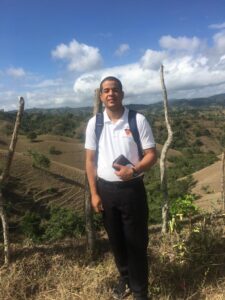 At that time I was a philosophy student at the Pontificia Universidad Católica Madre y Maestra, and I carried out a proposed project for the university, which was accepted and is now being implemented. It consisted of using renewable energies, using less paper and using more digital documents, since the use of paper contributes to increased water and energy consumption. We installed recycling bins in the university, and are carrying out the three R’s, RECYCLE, REDUCE and REUSE. In addition, we are reforesting some areas of the campus. All of these initiatives are being carried out and today the university campus is considered a green campus. With all this, we are helping to stop climate change from worsening.
At that time I was a philosophy student at the Pontificia Universidad Católica Madre y Maestra, and I carried out a proposed project for the university, which was accepted and is now being implemented. It consisted of using renewable energies, using less paper and using more digital documents, since the use of paper contributes to increased water and energy consumption. We installed recycling bins in the university, and are carrying out the three R’s, RECYCLE, REDUCE and REUSE. In addition, we are reforesting some areas of the campus. All of these initiatives are being carried out and today the university campus is considered a green campus. With all this, we are helping to stop climate change from worsening.
Taking care of our common home for me is a daily task, I do not miss any opportunity I have to talk about this issue and carry out a concrete action. You don’t have to do extraordinary things to help nature; just by getting out and picking up a piece of garbage you are already contributing. That is why I invite you to start being a protector of our common home, putting into practice small actions that mean a lot to our environment, such as not polluting, consuming less plastic, reducing the use of energy and hydrocarbons, turning off the water tap if you are not using it and planting a tree. Before it’s too late, join us in being a protector of our common home.
Go to top
St. Elizabeth of Hungary
Inspiring saint
Feast Day: November 17
Following Jesus: a decision of Love
By María de los Angeles Casafus Carrillo, spiritual consultant, Laudato Si’ Movement
 The meaning, the source and the summit of the Christian experience is love, “We love because He first loved us” (1 John 4:19), therefore, when we feel loved we have the option of deciding to love like Jesus: to the extreme and if possible a little more.
The meaning, the source and the summit of the Christian experience is love, “We love because He first loved us” (1 John 4:19), therefore, when we feel loved we have the option of deciding to love like Jesus: to the extreme and if possible a little more.
The experience of love demands, among other things, donation, self-giving, care for the other, stripping oneself of the securities of the world and dedicating one’s life to restoring dignity to those to whom it has been denied.
This was understood by St. Elizabeth of Hungary, whom we celebrate on November 17. She decided to live in the style of Francis of Assisi, renouncing all the securities that came from her social status. Let us remember that she was a princess of the 13th century and dedicated her life to the service of the poorest, exchanging her earthly crown for that crown of life, which God has promised to those who love him (James 1:12).
In 1228 she made public the profession of her vocation: to live in poverty and to dedicate herself to works of love for her neighbor with joy, as St. Francis exhorted his followers. He died in 1231 at the young age of 24.
 She decided to accept God’s call being aware that she was renouncing little on earth in comparison with all that the Lord promises us in the eternal, that is to say, that in discernment she knew how to listen to the concrete call that God made to her so that by stripping herself of everything she would serve the poorest of the poor. What is the concrete form of love to which God calls you?
She decided to accept God’s call being aware that she was renouncing little on earth in comparison with all that the Lord promises us in the eternal, that is to say, that in discernment she knew how to listen to the concrete call that God made to her so that by stripping herself of everything she would serve the poorest of the poor. What is the concrete form of love to which God calls you?
St. Elizabeth of Hungary was canonized by Pope Gregory IX in 1235, and is an example of Christian charity for all.
Let us pray for the upcoming COPs, especially COP27 this November. Let us pray for those who have the power to make decisions, that they may discover that love is also expressed by putting the common good above the individual good, and that with creative love they may arrive at bold action that moves away from fossil fuels.
Go to top
The Letter” has already been released: 3 simple but exciting reasons to watch it and spread the word
Have you seen the documentary “The Letter”, that premiered last October 4th at the Vatican? You may have already heard us talk about this, because this is a big event for the Laudato Si’ Movement! It’s the story of our encyclical told in first person by those most affected by the climate crisis.
Without a doubt, it’s exciting! So here are 3 key reasons why you should see The Letter and spread the word by organizing a community screening.
- The Letter puts a face to the climate crisis
“I’m not just another number in a statistic, I’m a person just like you.”
How do you feel when a friend calls you on the phone to tell you what they are experiencing? That’s what this film feels like: we hear from individuals what is happening to them in their neighborhood, in their family, in their country, regarding climate change and they take us with them to look at what they see and feel what they feel. Who doesn’t feel moved after experiencing such an experience?
- The Letter brings together the different dimensions of the crisis: it is not only science or politics
This documentary helps us to look holistically at what this ecological crisis is: ecology does not simply refer to nature (although this is how it is often conveyed); it refers to everything that fits into our development in an environment. Therefore, our relationships, our beliefs, our dreams, our health… are all touched by the climate crisis. As integral beings, “we seek – in the words of Pope Francis in Laudato Si‘- an integral ecology: healing every part of this living system.”
Why Catholics care about climate change
- The Letter makes us feel supported
“A sense of family emerged at the end of this project,” says Dr. Lorna Gold, director of the Laudato Si’ Movement, and one of the protagonists of The Letter. This same feeling manages to cross the screen and we end up knowing we are part of a large human and planetary family, we are no longer strangers or news in a newspaper. This gives us the strength to go through the crisis together! A revolution from love with other people and with other members of Creation!
Watch the full documentary here
Go to top






